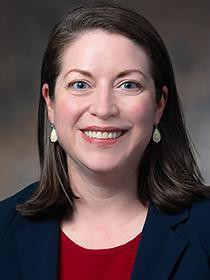
Bridget Trogden
About Bridget
Trogden's research focuses on the power of pedagogical interventions and institutional transformations to improve student learning in STEM courses, gateway courses, and across the undergraduate curriculum. Trogden's major themes in contributions include nonpartisan, cross-disciplinary voter engagement; student involvement, infusion of real-world/Global Challenges/wicked problems into education; and changes faculty can make to their classrooms to improve equity.
Contributions
In the News
Publications
Presents an institutional strategy for longitudinal collection of data to explore equity in high-impact educational practices and how disaggregation of student data supports institutional change.
Provides a lens for improving student-focused learning and teaching through assignment design.
Describes how education focused on diversity, equity, and inclusion should be incorporated across the curriculum.
Explains the how and why of the faculty role in nonpartisan student voter engagement.
Makes the argument that regardless of student major, students need education and training in how scientific issues impact society and vice versa.